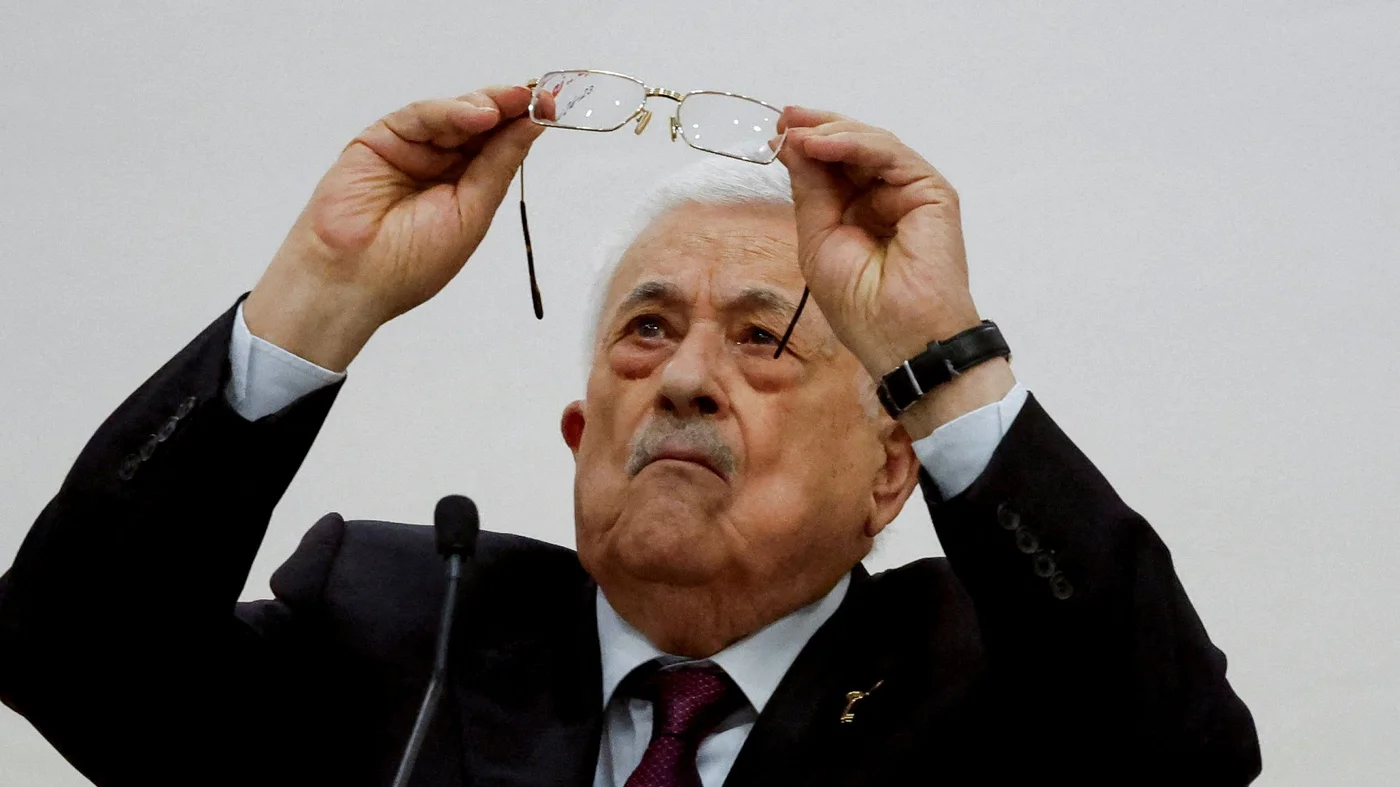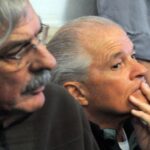
Amid Gaza’s genocide and imminent expulsion threats, the Palestinian people need a leader who can unite all factions around a common cause.
Eighteen months after the ongoing genocide in Gaza, Palestinian President Mahmoud Abbas gave a speech before the Palestinian Central Council this week that – at least superficially – deserves serious attention.
His words highlight the depth of Palestinian tragedy. Israel is responsible for the deaths of more than 50,000 Palestinians in Gaza and almost a thousand others in the occupied West Bank; for the total destruction of Gaza, which turned its population into refugee into their own lands; and for the forced displacement of tens of thousands of Palestinians in the West Bank.
But Abbas once again chose to use his platform not to ask for unity or resistance, but to launch a rude verbal attack on Hamas – this time using a language that resembles street insults.
“Sons of the mother, free who you are holding and end it,” said Abbas, referring to the Israeli hostages who still remain in Gaza. “End the excuses [de Israel] and save us. ”
Criticism of Hamas, considered a terrorist group in the UK and other countries, and its actions on October 7, 2023 are valid and necessary. Critical and open intrapalestical discourse is required.
But it is unacceptable that, in the face of the ongoing catastrophe in Gaza, the main message of Abbas is to condemn Hamas, without offering a vision or plan for Palestinian unity – especially given the existential threats that hang over the Palestinian people.
Even worse is his manipulation of historical facts to erase his own responsibility for the fragmentation of the Palestinian National Movement. It was Abbas who undermined the results of the 2006 elections, supervised by international observers after Hamas won the majority. The resulting rupture between Fatah and Hamas eventually led to Gaza by Hamas and the Geographic and Political Division of the West Bank territory.
Deepening of alienation
Abbas also shares the blame for this division. Whether by agreeing with elections that I had no intention of honoring, or by refusing to accept the result, its role in the crisis is undeniable.
Other Palestinian factions, such as the Popular Front for the Liberation of Palestine and the Palestinian National Initiative, boycotted the session in which Abbas spoke – a proof of deepening the alienation between the president and the broad Palestinian political spectrum.
Public opinion echoes this feeling. A survey conducted in September 2024 by the Palestinian Policy and Research Center found that in a hypothetical election between three candidates, only 6% of Palestinians would vote for Abbas compared to 32% for Fatah’s Marwan Barghouti and 31% for Hamas leader Yahya Sinwar, killed by Israeli forces weeks after the survey.
Even if the narrative of Abbas is accepted by blaming Hamas for Gaza’s schism, almost 20 years have passed since the last election. During this period, successive Israeli governments-especially that of Prime Minister Benjamin Netanyahu-strategically used the Palestinian division to prevent the establishment of a Palestinian state.
The Abbas narrative that Hamas is the guilty of our current situation acquit both Israel and himself of his responsibility shared in this national catastrophe.
Why didn’t Abbas propose a political plan of reconciliation? If the Palestinian Authority (AP) should represent all Palestinians, then their inability to restore unity is a monumental abandonment of duty. Today, the Palestinians are no longer divided between the 1948 and 1967 groups; Now we face a triple fragmentation of the territories of 1948, the occupied and Gaza Somnty.
Abbas’s discourse reflects both the recognition of the real and growing dangers that the Palestinians face and the deliberate denial of local realities, particularly in the occupied West Bank before 7 October. This denial helps him to avoid liability for the failure of his political trajectory, as Israel openly declared its intention to attach and ethnic cleaning in parts of the West Bank well before the Gaza War.
Only in 2022, under the so -called “Unit Government” of Yair Lapid and Naphtali Bennett, more than 1,000 Palestinians in the occupied West Bank were displaced and about 150 were killed, including dozens of minors. The expansion of settlements remained unshakable. Palestinian prisoners suffered from the worsening conditions. The Al-Aqsa Mosque remained under threat.
Regardless of the Palestinian political situation, Israel has been sharply leaning to the right in the last decade. Despite the close security coordination between the Palestinian Authority and Israel – with Palestinian security forces even invading refugee camps – and Abbas has not presented any serious plan to contain the violence of the settlers, Israel has constantly moved to make the Palestinian issue obsolete through de facto annexation.
‘No future in Palestine’
To understand Israel’s strategy, simply revisit a 2017 political document by Finance Minister Bezalel Smotrich, who called for the dismantling of refugee camps, the weakening of AP, the incentive to “voluntary emigration” (an euphemism for expulsion) and the breakdown of any chance of territorial contiguity to a Palestinian state.
The desperation now visible throughout the busy Someline – with outdoors and graffiti funded by Israeli campaigns stating: “You have no future in Palestine” – was planned long before October 7th.
Frame Israeli policies as mere reactions to 7 October levels discourse and allows Israel to justify its ongoing atrocities in the global scenario. Even when an agreement was near-including a ceasefire in Gaza, the gradual return of all hostages and the Israeli retreat from troops-Israel violated the terms. The hostage families themselves accused Netanyahu of sabotaging the deal and endangering their loved ones.
Israel then uses these justifications to expel tens of thousands of occupied West Bank, close Unrwa schools and retain the tax funds of AP. The Abbas narrative that Hamas is the guilty of our current situation acquit Israel and themselves of its shared responsibility in this national catastrophe.
What was even more intriguing in Abbas’s speech was his appeal for Hamas to testify his weapons and give Gaza control to AP. In other words, the only legitimate weapons would be those in the power of Palestinian security forces, and AP would work with Egypt to rebuild Gaza.
It is not the proposal itself that is intriguing – on the contrary, it makes sense – but the expectation that Israel would allow Fatah or AP to return to Gaza, as Netanyahu himself stated in February: “The day after the war in Gaza, there will be no hamas or Palestinian authority.” He added that he was “committed” to US President Donald Trump’s plan of “creating a different Gaza.”
Abbas’s discourse was tragic, especially since he leads the organization for the release of Palestine (PLO), the historical body officially recognized as representative of the Palestinian people. Rather a unifying force, the PLO now presides over a fragmented movement. The boycott of the Abbas Council meeting for important factions reflects this unprecedented crisis.
Faced with real and imminent threats of mass expulsion, especially in Gaza, but also in the busy West Bank, Palestinians need their leaders to be unifying, non -dividers. Abbas had a platform to claim for unity and resistance to Israeli war crimes. Instead, he opted for defamation and denial.
Originally published by Mee on April 25, 2025
Por Abed Abou Shhadeh
Abou Abou Shhadeh is a political activist based in Jaffa. Abou Shhadeh served as a representative of the Palestinian community at the Jaffa-Tel Municipal Council Aviv from 2018 to 2024 and has a master’s degree in Political Science from the University of Tel Aviv.
The opinions expressed in this article are the author’s responsibility and do not necessarily reflect the editorial policy of Middle East Eye.
Source: https://www.ocafezinho.com/2025/04/26/mahmoud-abbas-falha-de-lideranca-em-momento-de-crise/

